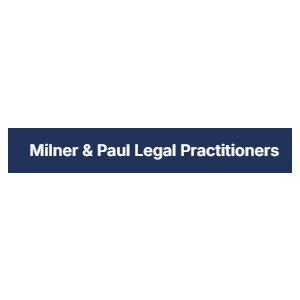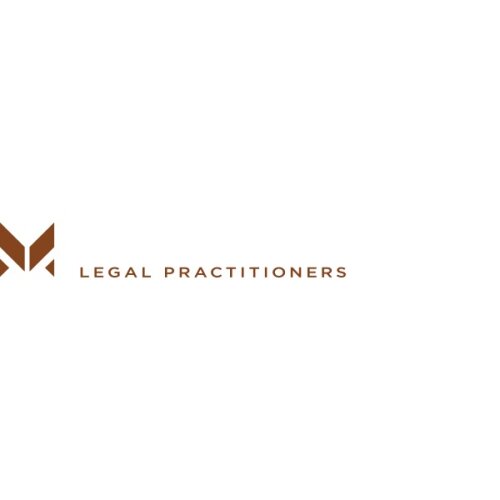Best Financial Services Regulation Lawyers in Zambia
Share your needs with us, get contacted by law firms.
Free. Takes 2 min.
Or refine your search by selecting a city:
List of the best lawyers in Zambia
About Financial Services Regulation Law in Zambia
Financial Services Regulation in Zambia is designed to oversee and manage the country's financial markets and institutions. It ensures transparency, fairness, and stability in the financial system, while protecting consumer interests. The Bank of Zambia and the Securities and Exchange Commission Zambia are the principal regulators, responsible for implementing financial laws and policies. These regulatory frameworks adhere to international standards to foster a stable economic environment and stimulate growth in various financial sectors, including banking, insurance, pensions, and capital markets.
Why You May Need a Lawyer
Navigating the complexities of Financial Services Regulation in Zambia may require legal assistance due to the intricacies involved. Common situations where a lawyer's expertise might be required include:
- Setting up a financial institution, which requires compliance with regulatory requirements.
- Licensing and registration procedures that require adherence to specific legal guidelines.
- Facing penalties or sanctions due to non-compliance with financial laws.
- Drafting and reviewing contracts or agreements related to financial products or services.
- Dealing with disputes involving financial service providers or consumers.
- Understanding the implications of new financial regulations or amendments.
Local Laws Overview
Zambia's regulatory framework for financial services includes several key pieces of legislation and guidelines to ensure effective oversight:
- Bank of Zambia Act: Governs the establishment, functioning, and supervisory roles of the Bank of Zambia.
- Securities Act: Provides for the regulation of securities markets and the protection of investors.
- Banking and Financial Services Act: Regulates financial institutions, covering aspects such as licensing, operations, and solvency requirements.
- Insurance Act: Oversight of insurance companies, brokers, and agents.
- Pensions Scheme Regulation Act: Ensures pension funds are managed lawfully and securely.
- Anti-Money Laundering Act: Establishes measures to prevent and mitigate risks associated with money laundering and financing of terrorism.
Frequently Asked Questions
What is the role of the Bank of Zambia in Financial Services Regulation?
The Bank of Zambia acts as the Central Bank, responsible for formulating and implementing a robust monetary policy, regulating and supervising banks, and ensuring financial stability.
How do I get a financial institution license in Zambia?
Applications for a financial institution license are submitted to the Bank of Zambia and must meet criteria outlined in the Banking and Financial Services Act.
What are the compliance requirements for financial service providers?
Providers must adhere to various requirements, including maintaining minimum capital, submitting regular reports, and ensuring anti-money laundering compliance.
What happens if a financial institution violates regulations?
Violators may face penalties, fines, suspension, or revocation of licenses, depending on the severity of the infraction.
How does one file a complaint against a financial service provider?
Complaints can be filed with the relevant regulatory body, such as the Bank of Zambia or the Securities and Exchange Commission, depending on the nature of the service.
Are there specific regulations for insurance companies in Zambia?
Yes, insurance companies are regulated under the Insurance Act, which ensures their solvency and the protection of policyholders.
How can I stay updated on changes in Financial Services Regulation?
Regularly check the official websites of regulators like the Bank of Zambia and attend forums or seminars related to financial services.
Is there consumer protection in the financial services sector?
Yes, several laws and regulations aim to protect consumers from unfair practices and financial fraud.
What resources are available for financial service providers?
The Bank of Zambia and the Securities and Exchange Commission provide guidelines, seminars, and training sessions to help providers comply with regulations.
Can foreign entities operate as financial institutions in Zambia?
Foreign entities can operate, but they must comply with local regulations, including licensing and registration with the appropriate authorities.
Additional Resources
For further assistance and information, consider reaching out to:
- Bank of Zambia: The central regulatory body for banks and financial institutions.
- Securities and Exchange Commission Zambia: Regulates securities markets and protects investors.
- Zambian Association of Chambers of Commerce and Industry: Offers networking and resources for businesses.
- Zambia Institute of Chartered Accountants: Provides professional development for accountants who often work in financial regulation.
- Legal practitioners: Specialized law firms or lawyers experienced in financial services regulation.
Next Steps
If you require legal assistance in Financial Services Regulation in Zambia, consider the following steps:
- Consult with a lawyer specializing in financial services regulation to discuss your specific needs and challenges.
- Gather all necessary documentation and information related to your financial services or issues.
- Review your situation with the guidance of your lawyer to understand your rights, obligations, and potential outcomes.
- Stay informed of any changes in laws or regulations that may impact your financial dealings.
- Engage with relevant regulatory bodies for advice or clarification on compliance matters.
Lawzana helps you find the best lawyers and law firms in Zambia through a curated and pre-screened list of qualified legal professionals. Our platform offers rankings and detailed profiles of attorneys and law firms, allowing you to compare based on practice areas, including Financial Services Regulation, experience, and client feedback.
Each profile includes a description of the firm's areas of practice, client reviews, team members and partners, year of establishment, spoken languages, office locations, contact information, social media presence, and any published articles or resources. Most firms on our platform speak English and are experienced in both local and international legal matters.
Get a quote from top-rated law firms in Zambia — quickly, securely, and without unnecessary hassle.
Disclaimer:
The information provided on this page is for general informational purposes only and does not constitute legal advice. While we strive to ensure the accuracy and relevance of the content, legal information may change over time, and interpretations of the law can vary. You should always consult with a qualified legal professional for advice specific to your situation.
We disclaim all liability for actions taken or not taken based on the content of this page. If you believe any information is incorrect or outdated, please contact us, and we will review and update it where appropriate.
Browse financial services regulation law firms by city in Zambia
Refine your search by selecting a city.

















